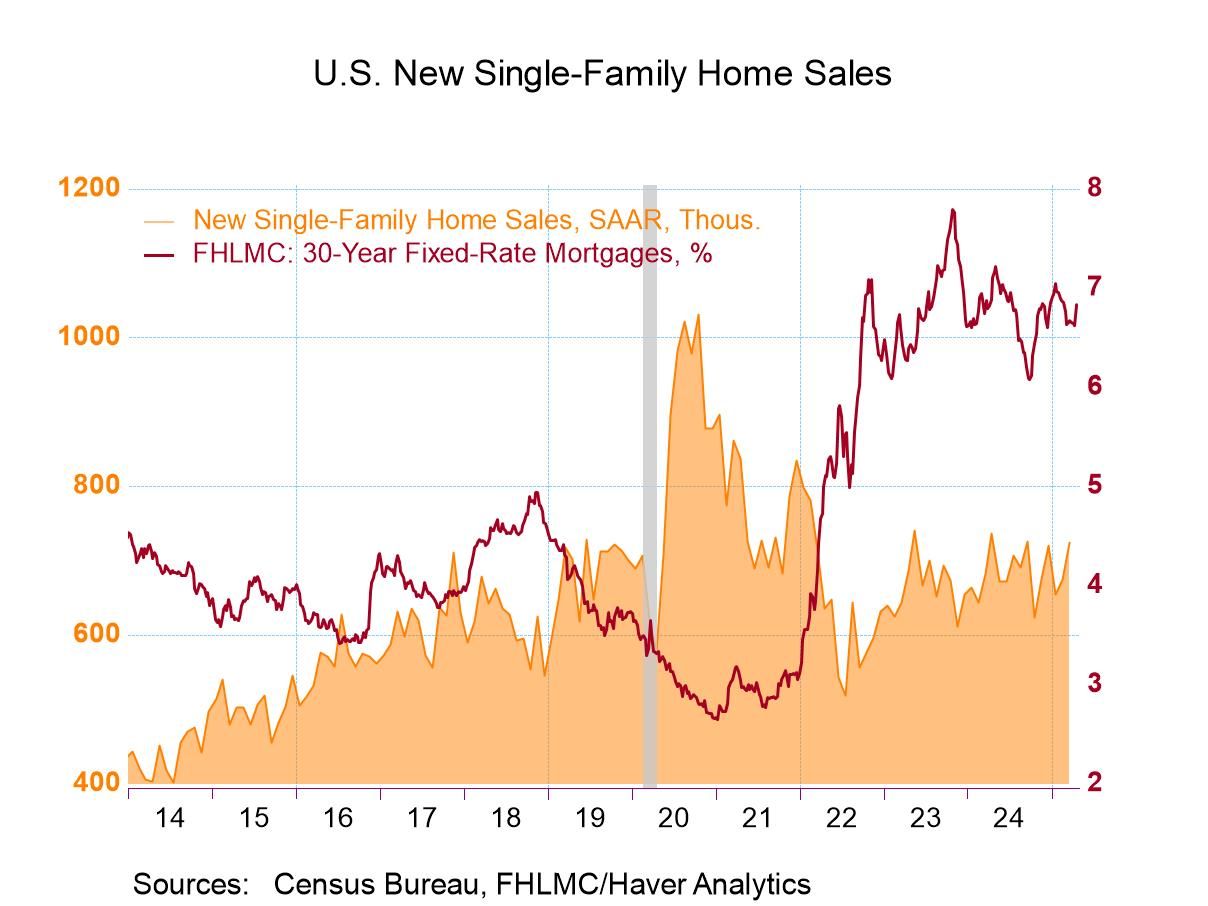U.S. ISM Services Index Is Little Changed in February
by:Tom Moeller
|in:Economy in Brief
Summary
- Reading remains in expansion territory.
- Business activity & supplier delivery measures decline; new orders & employment rise.
- Prices index falls to a roughly two-year low.


The U.S. ISM Services PMI eased to 55.1 during February from an unrevised 55.2 in January, according to the Institute for Supply Management. These levels are improved from a business contraction level of 49.2 in December of last year. The Action Economics Forecast Survey expected a reading of 54.2 for February.
Haver Analytics constructs a composite index combining the services index and the manufacturing reading released on Wednesday. This index eased to 54.3 last month from 54.4 in January but still was higher than 49.1 in December. These readings were below a high of 66.9 in November 2021. The series dates back to July 1997.
During February, the business activity index declined to 56.3 from 60.4 in January, suggesting slower growth overall. The index was below a 70.4 high in November 2021. A lessened 23.7% of respondents (NSA) reported higher activity last month while a smaller 15.7% reported a decline. The supplier delivery measure fell to 47.6 (NSA) from 50.0 in January. It was the lowest level since June 2009. A slightly increased 11.1% of respondents reported faster delivery speeds while a greatly lessened 6.2% reported a slowdown.
To the upside, the new orders index increased to 62.6 after strengthening to 60.4 in January. The index was below a record 69.2 in October 2021. An increased 33.7% of respondents (NSA) reported more orders while a lessened 10.2% reported a decline. The employment index also improved to 54.0 from 50.0 in January. It was the highest level since December 2021. An increased 21.7% of respondents (NSA) indicated higher employment while a greatly lessened 18.1% reported a decline.
The prices index declined to 65.6 from 67.8 in January. It was the lowest level since January 2021. The index remained below a record 84.5 in December 2021. A lessened 34.9% (NSA) of respondents reported price increases and just 5.1% reported price declines.
In other categories not in the overall index, the new export orders index increased to 61.7 last month from 59.0 in January. It was the highest level since September of last year. The imports index eased to 52.6 in February after rising to 53.0 in the prior month. The backlog of orders index was little-changed at 52.8 but was increased from a December low of 51.5. The inventory change index rose to 50.6 in February from 49.2. It was the highest level in nine months, up from a September low of 44.1. These series are not seasonally adjusted and not included in the ISM Services PMI total.
The ISM figures are available in Haver's USECON database, with additional detail in the SURVEYS database. The expectations figure from Action Economics is in the AS1REPNA database.


Tom Moeller
AuthorMore in Author Profile »Prior to joining Haver Analytics in 2000, Mr. Moeller worked as the Economist at Chancellor Capital Management from 1985 to 1999. There, he developed comprehensive economic forecasts and interpreted economic data for equity and fixed income portfolio managers. Also at Chancellor, Mr. Moeller worked as an equity analyst and was responsible for researching and rating companies in the economically sensitive automobile and housing industries for investment in Chancellor’s equity portfolio. Prior to joining Chancellor, Mr. Moeller was an Economist at Citibank from 1979 to 1984. He also analyzed pricing behavior in the metals industry for the Council on Wage and Price Stability in Washington, D.C. In 1999, Mr. Moeller received the award for most accurate forecast from the Forecasters' Club of New York. From 1990 to 1992 he was President of the New York Association for Business Economists. Mr. Moeller earned an M.B.A. in Finance from Fordham University, where he graduated in 1987. He holds a Bachelor of Arts in Economics from George Washington University.






